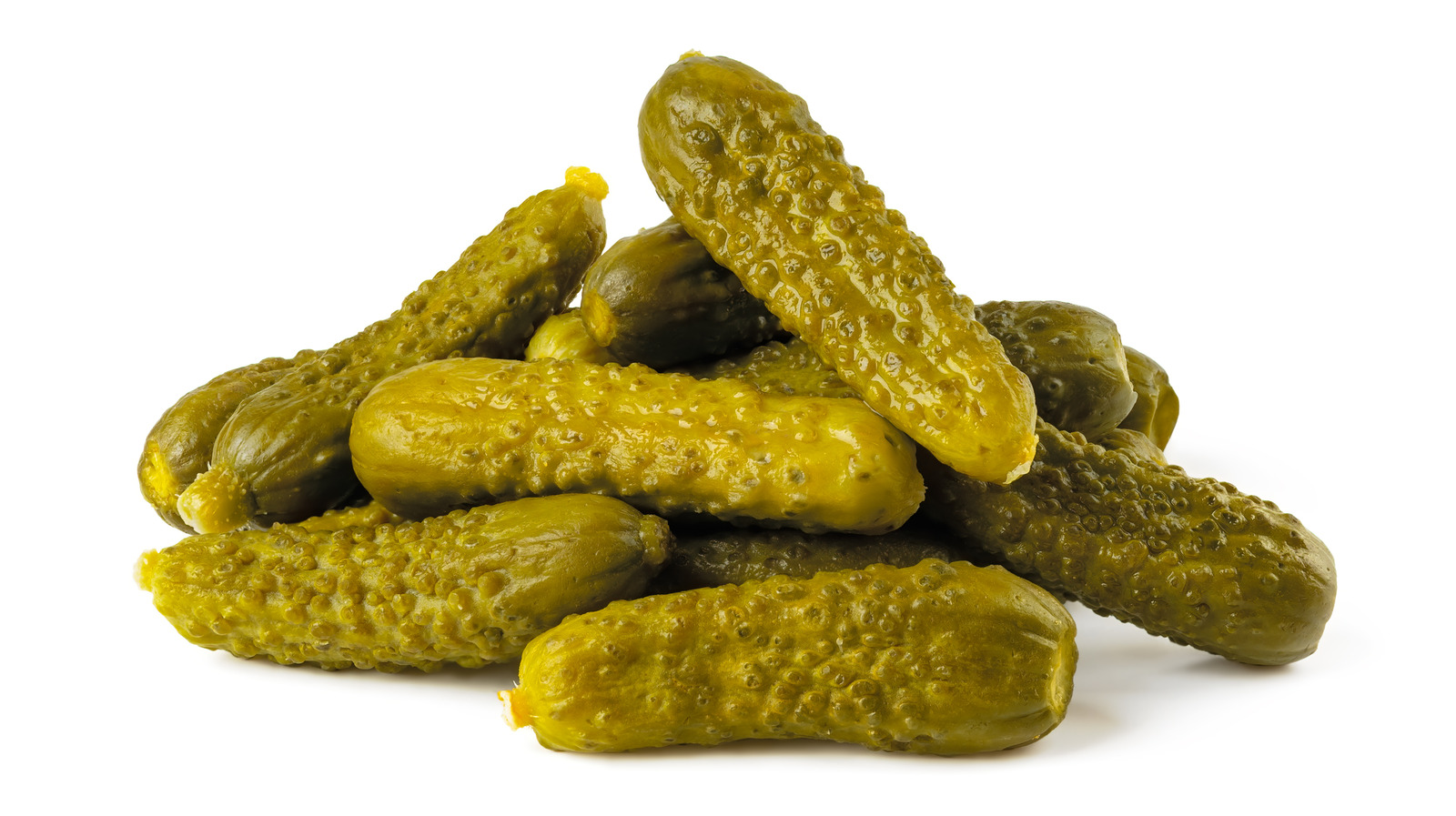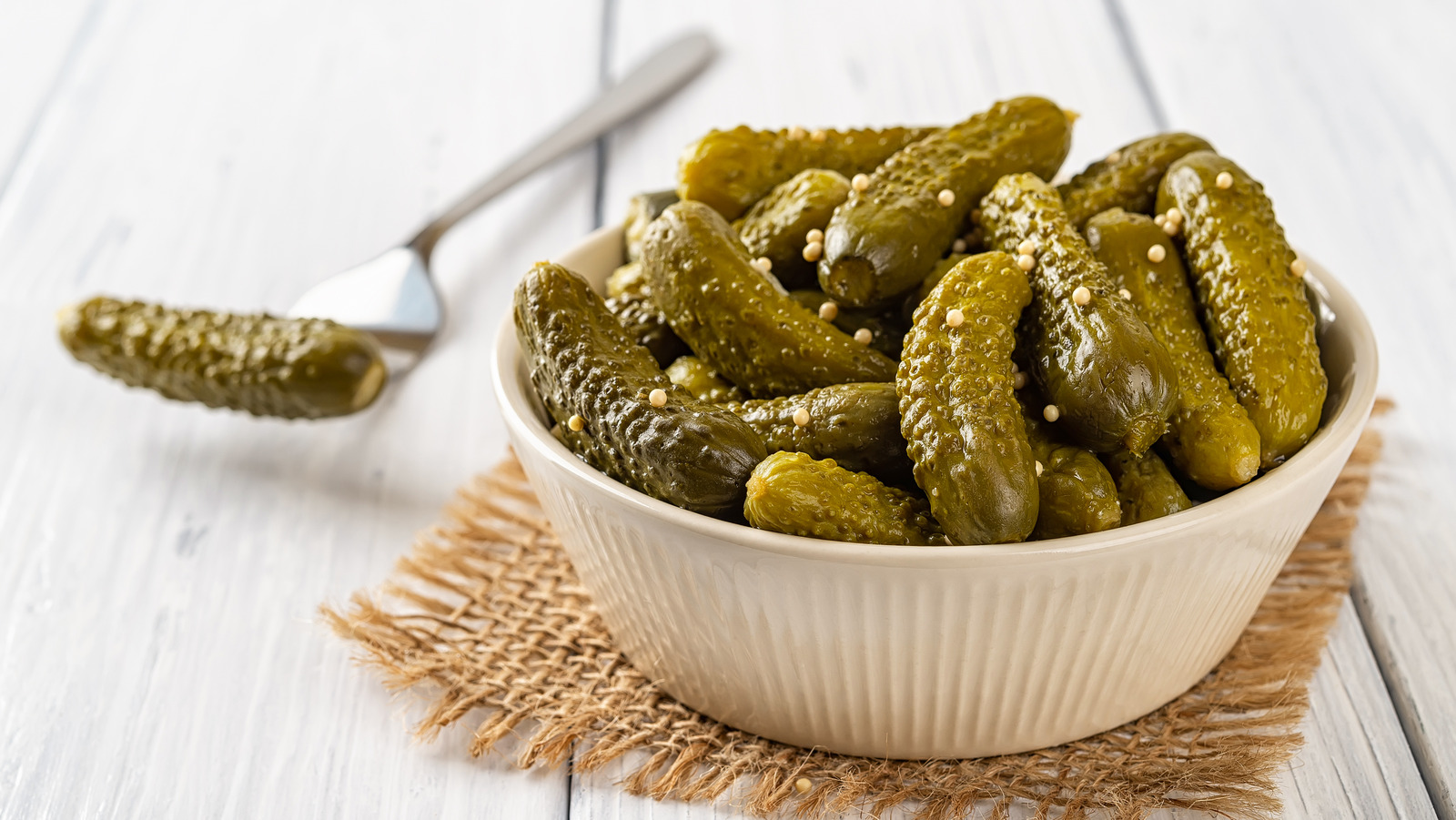Are you a connoisseur of fine food, with a penchant for the subtly sophisticated? Then you likely already know the joys of the cornichon a tiny, tart, and tantalizing pickle that elevates any dish it graces.
These miniature marvels, originating in France, are a staple in the world of charcuterie, offering a delightful counterpoint to rich pates, terrines, and an array of other culinary delights. Beyond their role as a classic accompaniment, cornichons have earned their place as a versatile ingredient, lending a burst of flavor and texture to everything from salads and sandwiches to sauces and more.
But what exactly are cornichons? How do they differ from their larger cousins, the gherkins? And how can you best incorporate these petite pickles into your own culinary repertoire? Let's delve into the world of cornichons and uncover the secrets to appreciating their unique charm.
- Hd Hub 4ufit Your Ultimate Destination For Highquality Entertainment
- Unlocking The Potential Of Aagmal Tech Your Ultimate Guide To Digital Innovation
Before diving deeper, here's a quick look at the key aspects of cornichons:
| Aspect | Description |
|---|---|
| Origin | France |
| Type | Small pickled cucumber (a type of gherkin) |
| Flavor Profile | Tart, tangy, with a satisfying crunch |
| Typical Seasoning | Tarragon and/or pepper, often with vinegar |
| Common Uses | Charcuterie boards, sandwiches, salads, sauces, garnishes |
Cornichons are, at their essence, a type of gherkin. However, not all gherkins are cornichons. The crucial distinction lies in the selection and preparation. Cornichons are crafted from young gherkins, harvested while they are still small, often just a couple of inches in length. This early harvest contributes to their characteristic small size, firm texture, and intense flavor.
The process typically involves brining the tiny cucumbers in a solution of vinegar, salt, and a medley of herbs and spices. Tarragon and pepper are particularly favored, infusing the cornichons with a distinctively tart and subtly peppery flavor profile. This differentiates them from many gherkins, which might be seasoned with dill and garlic, leading to a slightly different taste experience.
- Aag Maal Gives The Ultimate Guide To Understanding Its Impact And Importance
- Bollyflix Final Destination Your Ultimate Guide To Streaming Bollywood Movies
Beyond their inherent appeal, cornichons offer an array of practical benefits. Their small size makes them easy to incorporate into various dishes, while their firm texture provides a satisfying crunch. The tartness of cornichons acts as a palate cleanser, cutting through richness and complementing a wide range of flavors.
Think of the classic charcuterie board. The salty, savory components cured meats, cheeses, and olives are all perfectly balanced by the burst of acidity from the cornichons. Similarly, in a sandwich, cornichons can add a delightful textural and flavor contrast to the creamy fillings and soft bread. The possibilities extend to salads, sauces, and beyond, making them a versatile addition to any kitchen.
So, what are the key ways to utilize cornichons effectively in your cooking? Consider the following:
- Charcuterie Boards: The quintessential pairing. Arrange cornichons alongside your favorite meats and cheeses for a balanced and visually appealing spread.
- Sandwiches and Burgers: Diced or thinly sliced cornichons can add a welcome crunch and tang to sandwiches, burgers, and wraps.
- Salads: Chop cornichons and add them to potato salads, composed salads, or even pasta salads for a burst of flavor.
- Sauces: Cornichons are a key ingredient in classic sauces such as charcutiere sauce. They can also be finely chopped and added to mayonnaise, aioli, or vinaigrettes.
- Garnishes: Whole cornichons can be used as a simple and elegant garnish for dishes like pates, terrines, or even grilled meats.
The options are truly boundless when it comes to enjoying cornichons. The crucial thing is to understand their flavor profile and experiment with different pairings to discover your favorite combinations.
But what about the ever-present comparison: Are cornichons and gherkins the same thing? The answer, as mentioned earlier, is nuanced. All cornichons are gherkins, but not all gherkins are cornichons. The term "gherkin" is a broader category, encompassing a variety of small cucumbers used for pickling. Cornichons, however, represent a specific subset, characterized by their small size, early harvest, and particular flavoring. The french word "cornichon" itself means "sour gherkin."
Gherkins, in general, may offer a range of flavors. Some are sweet, some are sour, and some even offer a spicy kick. Cornichons, by comparison, tend to be uniformly tart and crunchy, with the unmistakable taste of tarragon and pepper. While gherkins can certainly be delicious, the cornichons specific preparation and flavor profile mark it as a unique and refined experience.
To further clarify the differences, consider these points:
| Feature | Cornichons | Gherkins |
|---|---|---|
| Size | Small (typically 1-2 inches) | Variable (can be larger) |
| Harvest Time | Young, immature gherkins | Can be harvested at various stages of maturity |
| Flavor Profile | Tart, tangy, often flavored with tarragon and pepper | Variable, can be sweet, sour, or spicy, often flavored with dill and garlic |
| Texture | Firm, crunchy | Can be softer or more tender |
If you are ever seeking a substitute for cornichons, the answer is gherkins, but with a caveat. Look for gherkins that are similarly small and tart, mirroring the flavor profile of cornichons. While not an exact match, they can effectively replicate the desired flavor and texture. Another option that can work well in a pinch is capers. The taste is sour and salty, offering a similar acidic element. They can add uniqueness to a dish.
The sourcing of the best cornichons can impact the overall experience. There are several well-known brands, often hailing from France, that specialize in producing high-quality cornichons. Look for products that list cornichons or tiny baby pickles as ingredients. Checking the ingredient list for tarragon and pepper will also give you a good indication that the cornichons have been prepared in the authentic style.
Beyond simply buying cornichons, knowing how to store them is also critical. As with any pickled product, the cornichons should be stored in a cool, dark place. After opening the jar, it is crucial to keep the cornichons refrigerated to maintain their freshness and crispness. If the cornichons are exposed to air for an extended period, they can begin to soften and lose their characteristic crunch.
And what about making your own cornichons? The process is surprisingly achievable, allowing you to personalize the flavor profile to your exact liking. The key ingredients, as mentioned earlier, are young gherkins, vinegar, salt, and your choice of herbs and spices. Some prefer to use Parisienne Cornichon de Bourbonne varietals. You can find recipes online which will guide you through the pickling process and help you create a batch of homemade cornichons in no time.
The history of cornichons is firmly rooted in French culinary traditions. They've been a staple for centuries and are a must-have for any charcuterie board. The flavors combine, enhancing the quality of the whole meal. The french word of this item is the key of its popularity, which is now worldwide.
Persillade sauce is literally just a few things from your fridge and pantry, mixed together, and in a few minutes, create so much flavor to slather on everything. In its most basic form, it is parsley, garlic and oil, but atk adds cornichons and capers for a briny note.
In summary, the world of cornichons is a delightful realm of culinary possibilities. These tiny, tart pickles, born from French tradition, offer a burst of flavor and texture that enhances any dish they accompany. By understanding their origins, characteristics, and culinary applications, you can unlock the full potential of cornichons and elevate your own cooking and dining experiences.
So, the next time you are looking to add a touch of elegance, a burst of flavor, or a satisfying crunch to your culinary creations, don't hesitate to reach for a jar of cornichons. They are a testament to the power of simplicity and a reminder that sometimes, the smallest things can make the biggest difference.
- The Khatrimaza Your Ultimate Movie Experience Hub
- Ippa020001 Your Ultimate Guide To Unlocking The Mystery
:max_bytes(150000):strip_icc()/all-about-cornichons-995629-hero-02-17216a007cf84fcb8b90520e3677b0ca.jpg)

